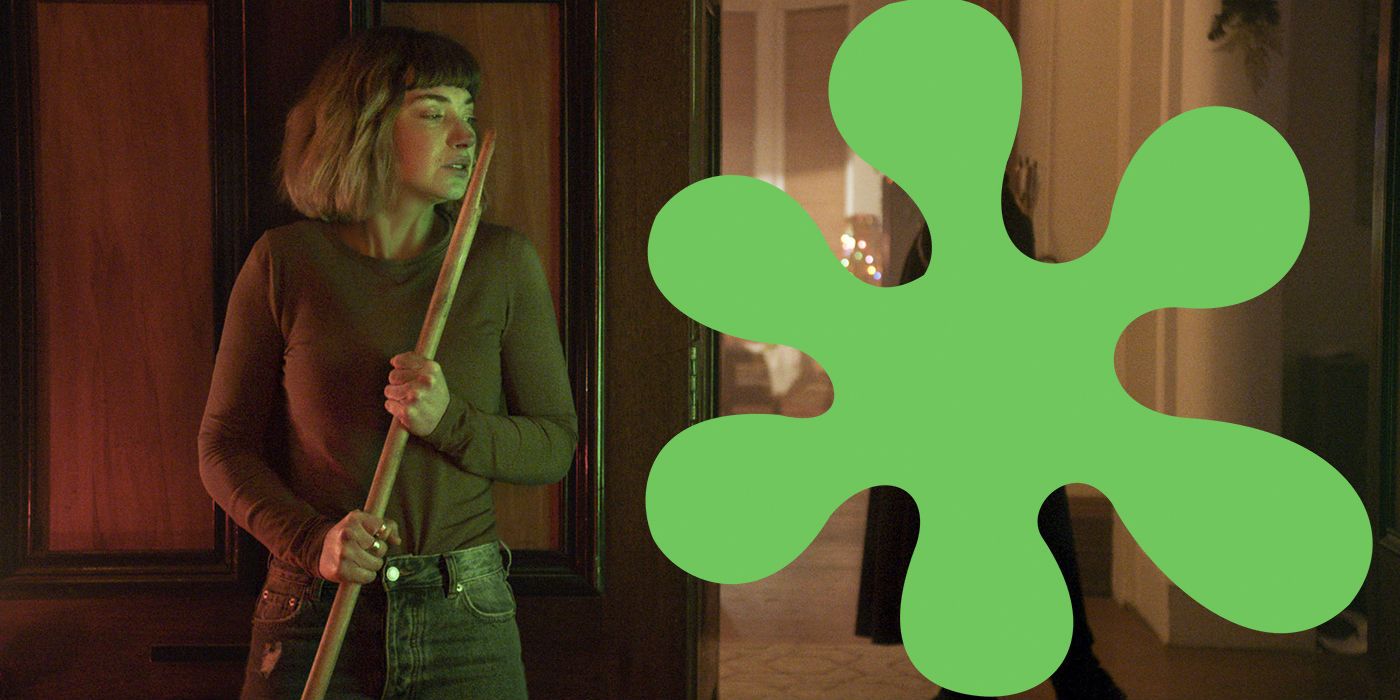Black Christmas 2019 is now in theaters, and critics aren’t being kind with their reviews, arguing that the script isn’t as clever as it thinks it is. When it was announced back in June of this year that Blumhouse and Universal were prepping a second remake of Black Christmas, horror fans reacted with a mix of excitement and trepidation. Blumhouse has a long track record of successful horror films under its belt, but most horror devotees have long since grown wary of Hollywood’s constant remakes.
Plus, Black Christmas had already been remade back in 2006, and almost nobody ended up liking the finished product, despite a very talented cast being recruited. More recently, director Sophia Takal’s statements about the new Black Christmas carrying with it a feminist message served to raise eyebrows, although some of that was due to plain old sexism. The trailers for Black Christmas also caused worry, as they seemed to be giving away the entire plot, and one that didn’t seem to resemble its namesake.
Click the button below to start this article in quick view.
With Black Christmas, the 2019 revamp, attempting to slash into the box office, its prospects won’t be helped by the predominately negative reviews it’s earning from critics. Here’s a sampling of the critical opinion.
The idea of a lady-avengers update on all those classic horror tropes is sort of delicious; unfortunately, it’s undone in the end by a nonsensical script stacked with silly supernatural twists — some dark-arts hoodoo that feels all the more unnecessary when the ordinary evil of leering rape-culture bogeymen is already baked in.
Announced in June, with production starting later that month, and now out just under six months later, there’s an inescapable, palpable sense of hurry throughout the 2019 iteration. It’s quick, cheap-looking and entirely devoid of suspense, atmosphere and dramatic tension, so inept at times that it makes 2006’s questionable remake suddenly seem like a misremembered masterwork. What’s most surprising, and initially intriguing, about round three is that it’s ultimately less of a horror film and more of a thinkpiece, a hodgepodge of buzzwords and ideas, aiming high but crashing into the snow.
Unfortunately, Takal’s Black Christmas is far more ordinary, a blunt object in a fight demanding either sharp knives or explosives. Initially a sluggish stalker flick whose undergraduate moral debates are tiresome instead of provocative, it eventually transforms into a patriarchy metaphor as obvious as, well, all those Greek-lettered paddles that decorate both the frat’s and the sorority’s clubhouses. […] Perhaps not trusting that multiplex audiences are as smart as the art house patrons who saw Always Shine, Takal and co-writer April Wolfe beat the movie’s themes into the ground in both dialogue and characterization.
Blumhouse is serving feminist punch this Christmas, but rather than crafting a well-orchestrated cocktail, they’ve thrown every ingredient in and hoped for the best. But as rings true at even the worst holiday parties, even a crappy punch still gets you drunk. Final verdict? It isn’t a great Black Christmas re-imagining, and story and characters fall victim to the agenda – but there are a heck of a lot of Christmas lights, and at least one character croaks out in the snow.
As can be seen in the excerpts above, critics seem to have less problem with Black Christmas’ intended feminist message than they do the film’s sloppy and cliched execution of that idea. There’s certainly nothing wrong with a film that lets women get revenge on the misogynist men who treat them like dirt, but there are many other, better films once can look to that serve the same purpose.
Black Christmas definitely sets up possibilities but also decides to run with the most obvious scenario that is something so direct, that in the moment it feels like overt misdirection. From there, the third act gets progressively ridiculous and less intimate to the core characters in an attempt to say something grander about sisterhood, but really just makes an even bigger mess out of the story.
The topics Black Christmas attempts to juggle are worthy and necessary. The real horrors of campus assaults should be examined, and horror makes for a perfect vehicle for that discussion. Yet this remake’s ambitions are too lofty for its own good. The messaging forgoes finesse and grace in favor of blatant lecturing, cramming patriarchy, rape culture, toxic masculinity, and white male rage all in an unsatisfying Christmas horror package. Throwing every single talking point of the movement into a clumsy script that overwhelms both the horror and the narrative makes for a cinematic lump of coal that poor [Imogen] Poots can’t save, no matter how hard she tries.
Interestingly enough, given the film’s subject matter, it does seem, at least based on the reviews thus far, that female critics are generally finding more to appreciate in Black Christmas than their male colleagues. However, it’s not as simple as there being a blanket gender divide, as the above cited negative reviews include several female critics, and Screen Rant’s own Molly Freeman also disliked the film immensely. So, it seems that being a woman might make one more likely to enjoy Black Christmas 2019, but it’s by no means a guarantee. Hopefully the next horror film made from a feminist perspective is able to better balance its message with telling a good story.
